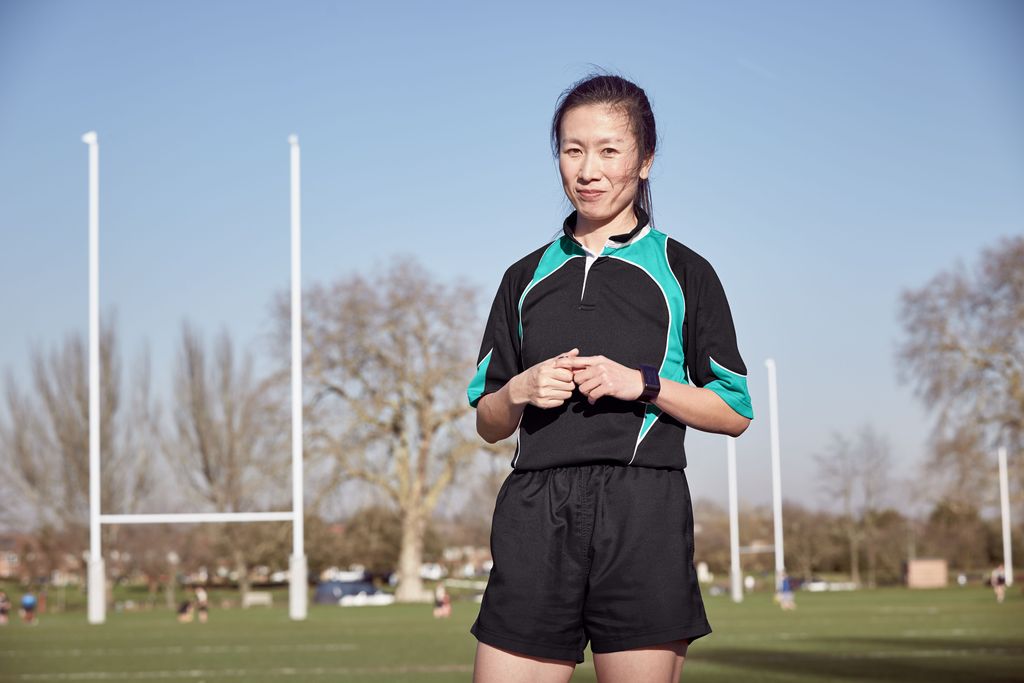The return of rugby to the Olympic Games has opened up the sport to players from a myriad of new and emerging nations.
And hoping to join the qualified teams in Tokyo next year will be China’s first female referee, Phoenix Xu.
Phoenix was introduced to rugby at university, where she arrived as a football player but was required to pick up an oval ball as part of her training regime.
That was as far as her playing career went but almost three years after graduating she was approached about enrolling on a refereeing course and hasn’t looked back.
Phoenix acted as a local assistant referee/in-goal judge for the HSBC World Rugby Women’s Sevens Series round in Guangzhou, China, in April 2014.
Chasing a dream
She has since been involved in many regional tournaments across Asia but her burning ambition has always been to reach sport’s grandest stage.
“When I started to referee, the first day, I thought ‘what’s my journey to the Olympic Games?’ Phoenix explained. “I think every referee would want to get the chance to go there.
“But I think on my way I try to do my best at everything, at chance, at exercise, at refereeing – on-pitch and off-pitch.
“If I do not get the chance, I don’t think I would regret it because I give my best to the rugby way.
“If you have a dream, you chase, you get your dream. That is amazing for people everywhere.”
Unstoppable
Phoenix attributes her success on the pitch to rugby’s ability to leave those who are involved in it wanting more.
“If you start to play rugby, you cannot stop,” she said.
“If you start you just want to keep moving up, and it’s just that sense of accomplishment. You just want to keep going up.
“Off the pitch if you do work then everything helps to give me the power to go up.”
New cultures
In return, rugby has given her the opportunity to travel the world and experience new cultures along the way as she mixes with officials from other nations.
“I think I’m very lucky because everywhere [I’ve gone], in any country, I’ve met their referee coach and they were so nice to me and they told me a lot,” the Chinese referee said.
“I’m five years a referee but I’m a new referee because in China there were not more games, like in England or New Zealand [where] there are more games.
“It’s getting more so in China, they tell me ‘Oh, Phoenix which kind of referee path do you need to go? The first, second, pass, pass and then the final you should get the Olympic Games’.”
Phoenix would like to encourage more women to pick up a whistle and get into refereeing in China, but is aware that barriers still exist across the country.
Changing perceptions
The biggest, according to her, is the perception of the older generation that the sport is too dangerous for their children to play.
“I think in China most parents, my parents’ generation, think it’s too hard for their kids to play rugby,” Phoenix explained.
“But when we grow up and maybe people my age, they will want their kids to play rugby. It’s not dangerous … it’s a sport that women can play as well as men, that’s very cool.”
Phoenix knows only too well that the decision to give rugby a go can be met with a mixed reaction at home.
“Before [my parents] thought that it was too hard for me. It’s better to do that game [football],” she said.
Big power
“But from last year they totally changed. They watched me on TV, they’re so proud and maybe friends of my parents, they all know rugby.
“‘Oh, that was rugby’. ‘Oh, that is the sport’. They all watched the TV and they are all so proud of me, they are so happy.”
Should that message seep through to more of the population then Phoenix believes that China has the potential to become a “big power” in the sport.
“China is a big sports country but like our president said, Chinese sports need to move up from being a big sports country to being a big power,” she said.
“I think that Chinese rugby should make a country built for that. China [has] a lot of people, a lot of kids, a lot of adults to play rugby.”
